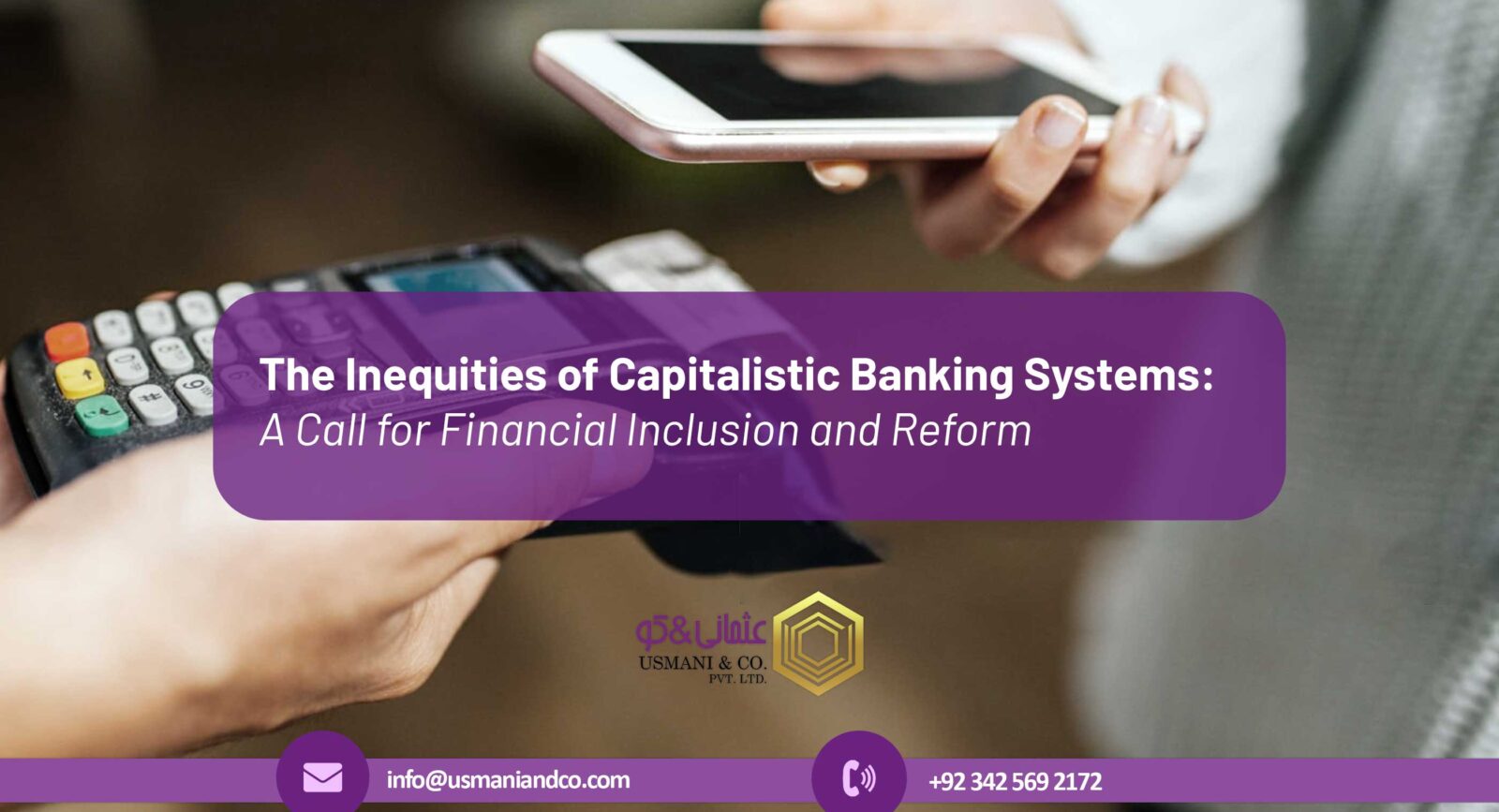The Inequities of Capitalistic Banking Systems: A Call for Financial Inclusion and Reform
A troubling trend emerges in capitalistic banking systems: the rich get richer while the masses grow poorer. Take, for instance, the scenario where a single bank holds deposits from millions of individuals, comprising 95% of its funds. Yet, who reaps the benefits of this vast sum? Primarily, it’s the select few: borrowers from affluent corporations funded by numerous other banks with their extensive depositor bases.
These borrowers, typically numbering no more than 500, represent a mere fraction—0.1% or less—of the general population. Meanwhile, the lion’s share of profits flows into the pockets of a privileged 5% of equity holders, leaving the rest—especially those with current without return and savings accounts—receiving meager returns compared with shareholders’ returns.
Effectively, the masses’ wealth, including Islamic and non-Islamic banking sectors, funnels upward to enrich a minuscule segment of society: the affluent corporates and wealthy individuals who constitute less than 0.1% of total depositors. While Islamic banks may shun interest-based transactions in favor of Shariah compliance, their contribution to equitable wealth distribution remains questionable, mainly if depositors receive diminished returns.
This disparity leaves a sizable portion of the populace, roughly 75%, mired in a cash economy devoid of meaningful returns or access to financial services. Consequently, many resort to illicit means to safeguard or augment their wealth, perpetuating corruption, tax evasion, and other unlawful activities driven by the necessity to conceal income and business dealings.
The path to rectification necessitates bold reforms:
- Implement Real Mudarabah: Establish genuine profit-sharing arrangements for depositors, free from any semblance of gift-giving (Hiba). However targeting a better return to both parties, Shareholders and account holders, the ratio of Mudarabah may be worked out in a way to give both on a fair, balanced, equitable, and market-driven basis, which means not too high to the equity holders or not too low to the account holders.
- Leverage Technological Advancements: Harness the power of AI, big data, and credit scoring to extend financial inclusion to the masses, offering them competitive returns and facilitating access to productive, Shariah-compliant asset-based financing. Maybe this short-term masses inclusive SME and productive financing based on revolving and multiple cycles of transitions would be equally beneficial to both parties, to scale up the businesses of these masses and giving the regular good returns to the banks from these masses keeping in view or analyzing the data of each branch of banks of the depositor customers base data of their deposits and withdrawals behavior.
- Shift from Government Debt to Asset-Based Financing: Redirect funds currently allocated for government budget deficits towards productive ventures, leveraging the wealth of the masses for tangible economic growth instead of perpetuating interest payments to lenders or bridging budget shortfalls.
In embracing these measures, we promote financial equity and cultivate a system that empowers individuals, fosters economic stability, and mitigates the allure of illicit financial practices. It’s a pathway toward a more just and prosperous society for all.



1 Comment
Shahzad Shaukat
Dear Respected Team members, Why Islamic Banking is being promoted? Shift from Government Debt to Asset-Based Financing – what are the basics of this shift? How it will be halal if asset-based financing is against Sharia? Do you have knowledge of finance? Can you achieve halal banking targets while issuing incomplete fatwas to Islamic Banks? Why do you accept huge fatwa fees issued for the satisfaction of banking system? Promoting business of riba after issuing fatwa, portraying that it is Islamic whereas it is against injunctions of Islam with the label of Islam, is it not fitna?
May Allah bless this Ummet capable true Ulamay-e-Karam. Ameen